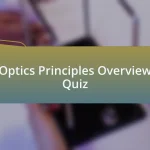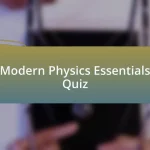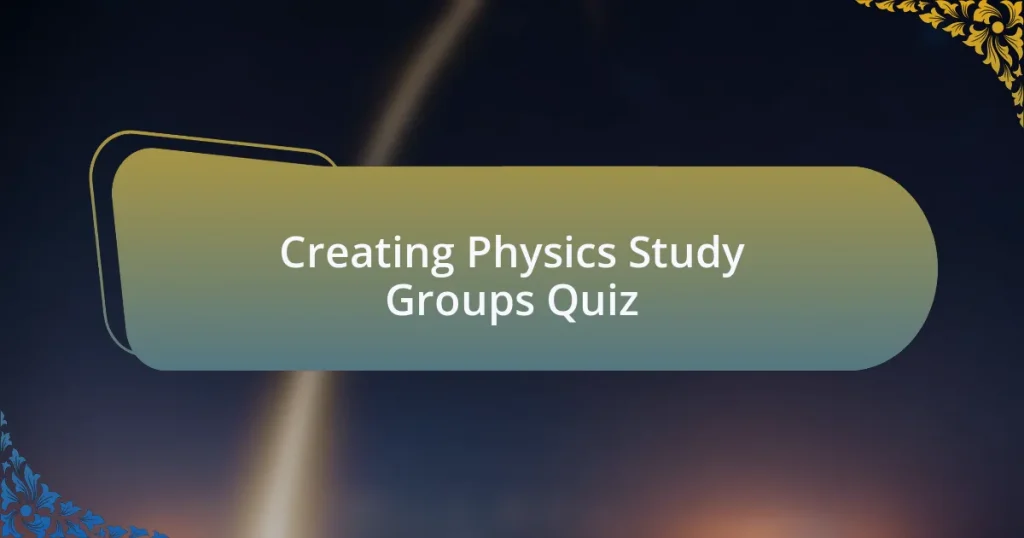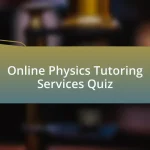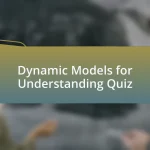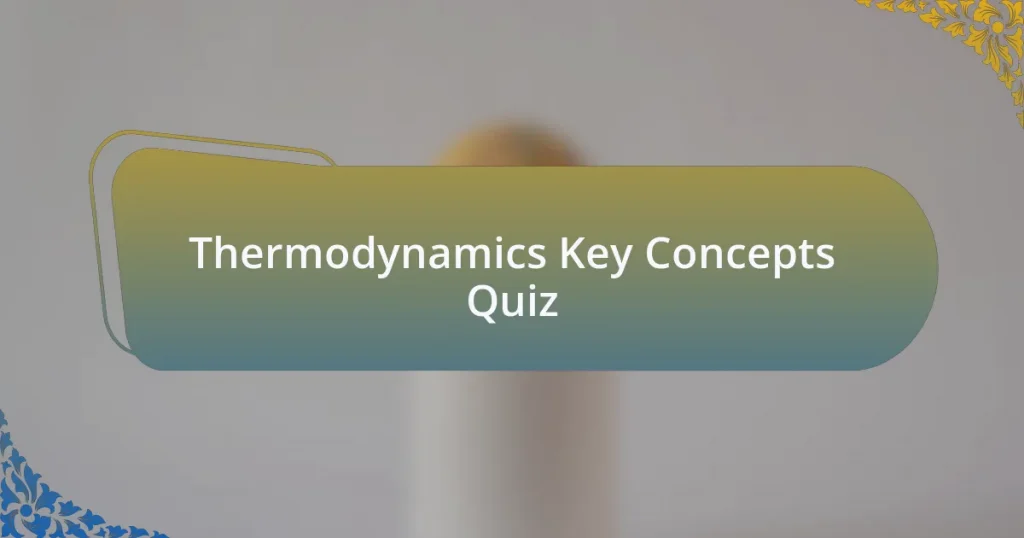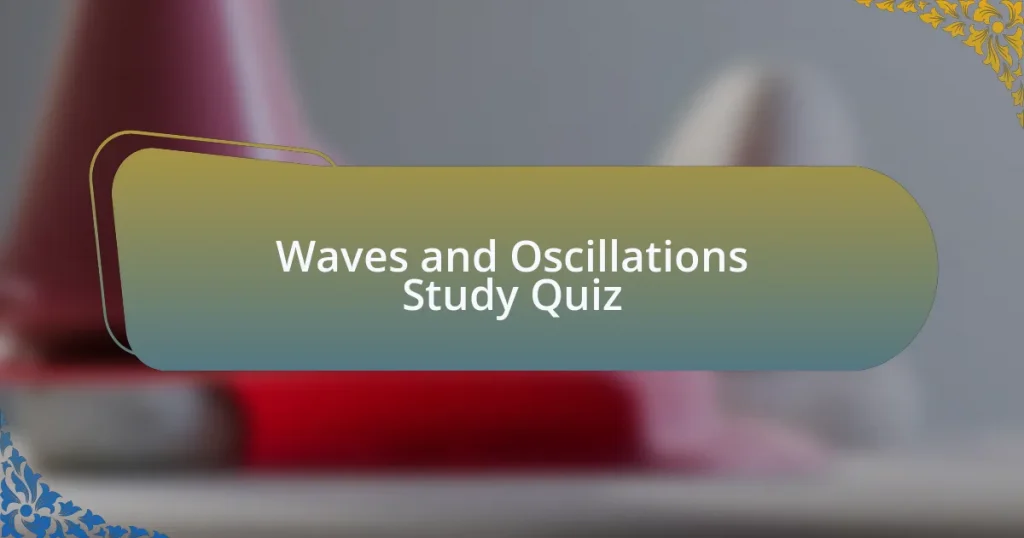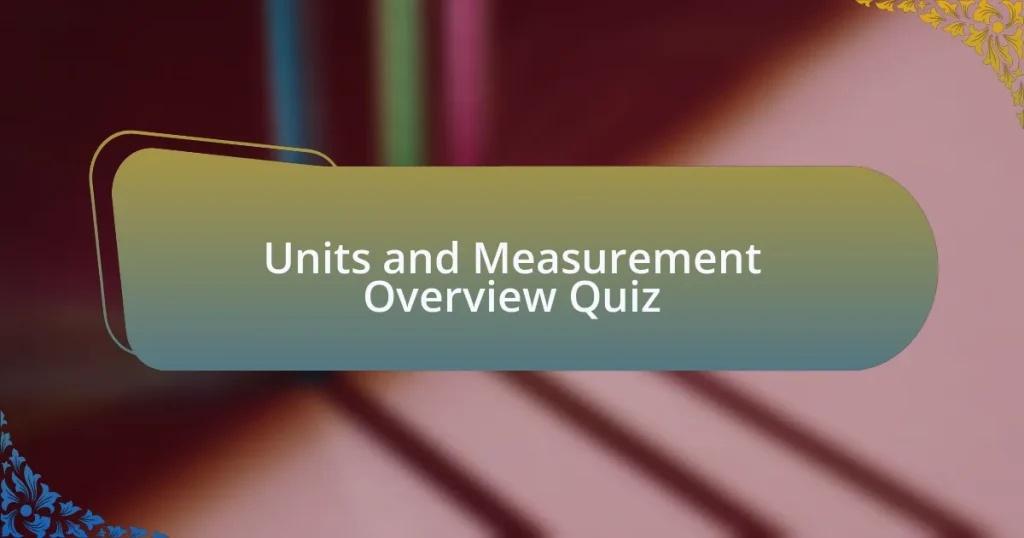Start of Creating Physics Study Groups Quiz
1. What is the ideal size of a study group for effective learning?
- Two members.
- Ten members.
- Between three and five members.
- One member.
2. How long should a study session typically last?
- Between one and three hours.
- More than five hours.
- Less than 30 minutes.
- Only 15 minutes.
3. What should each member of the study group come prepared with?
- A list of questions to ask the instructor.
- Snacks to share with the group.
- Familiarity with the material and knowledge of areas they are having difficulty with.
- A full schedule of future meetings.
4. Who should lead the study group session?
- The member who is struggling the most.
- The member with the least understanding of the material.
- The most introverted member of the group.
- The person who started the study group and/or invited others to the study group.
5. How should the study group session be structured?
- Focus only on one member presenting their notes to the group.
- Spend the entire session on just reviewing past exams.
- Use a study guide, study questions, assign topics, or go around the room to discuss each person`s needs.
- Allow free discussion without any structure or guidance.
6. What is the importance of staying organized and focused in a study group?
- It allows members to rely solely on one person for all information.
- It promotes frequent interruptions and chaotic discussions.
- It helps maintain productivity and prevents members from losing focus.
- It encourages casual conversation and distraction during sessions.
7. How often should study groups meet?
- Regularly, with a consistent schedule to reinforce concepts.
- Once a month for a comprehensive review.
- Sporadically, whenever members feel like it.
- Only when exams are approaching.
8. What are some effective ways to structure a study group session?
- Focus solely on solving problems without prior discussion.
- Randomly discuss any topic without structure.
- Use a study guide, study questions, assign topics, or go around the room to discuss each person`s needs.
- Spend the entire session reviewing past tests without new material.
9. Why is it important to bring notes to a study group session?
- To keep the discussion focused solely on one person`s notes.
- To compare notes with other members and ensure everyone is on the same page.
- To avoid having to study beforehand and rely on others.
- To impress others with how much information one has.
10. What should be done during breaks in a study session?
- Continue studying without breaks to maximize efficiency.
- Spend the break on social media or unrelated activities.
- Leave the study area and do not return until study time is over.
- Take a 10-minute break to minimize interruptions and maintain focus.
11. How should the study session be wrapped up?
- End the session abruptly without any closure.
- Disband the group without discussing topics.
- Conduct a quick review or wrap-up to recap what was covered.
- Leave members with unresolved questions.
12. What is the role of a leader in a study group?
- The leader should take all the notes for the group and answer all questions.
- The leader should remain silent and let others direct the session.
- The leader should guide the session, ensure everyone is on track, and keep the group focused.
- The leader should only discuss their own understanding of the material.
13. Why is it beneficial to use visual aids in a study group?
- Visual aids help understand complex concepts better and make abstract ideas more concrete.
- Visual aids distract from the discussion and cause confusion.
- Visual aids only benefit visual learners and not everyone in the group.
- Visual aids are unnecessary because all members can read the textbook.
14. How can study groups help in problem-solving?
- Collaborative problem-solving allows for the exchange of ideas and clarification of doubts, reinforcing understanding.
- Members can work individually in a group, focusing solely on their own problems.
- Study groups allow for distractions that can lead to greater creativity.
- Study groups increase competition among members, which helps improve performance.
15. What are some online resources that can be used for physics study groups?
- Websites like Khan Academy, Coursera, and YouTube offer tutorials, lectures, and practice problems.
- Wikipedia contains in-depth articles about physics concepts but lacks interactive elements.
- Social media platforms like Facebook and Instagram provide study tips and articles.
- Online shopping sites offer textbooks and resources that are not primarily focused on study aids.
16. How can real-life scenarios be connected to physics concepts?
- By discussing concepts in isolation without any examples.
- By memorizing formulas without context to understand their meaning.
- By using analogies and metaphors to simplify complex ideas and make them more relatable.
- By ignoring real-world applications and focusing solely on textbook problems.
17. Why is it important to focus on one concept at a time?
- It allows for multitasking and quick coverage of many topics.
- It is more engaging when many concepts are learned simultaneously.
- Focusing on one concept at a time helps build a solid understanding without feeling overwhelmed.
- It increases confusion by mixing different ideas together.
18. What role do hands-on experiments play in understanding physics concepts?
- Hands-on experiments are only useful for advanced students, not beginners.
- Hands-on experiments distract from theoretical learning and should be avoided.
- Hands-on experiments are irrelevant as physics relies solely on calculations.
- Hands-on experiments solidify understanding by making principles tangible and engaging.
19. How can active learning enhance understanding in a study group?
- Active learning suggests that studying in isolation is just as beneficial as studying in a group setting for mastering complex topics.
- Active learning is overrated; passive reading and highlighting are more effective study methods for comprehension.
- Active learning means simply listening to a lecture without participation, making it easier to memorize facts.
- Active learning involves taking notes, summarizing concepts in own words, and teaching them to someone else, which helps in deeper understanding and retention of knowledge.
20. Why is it beneficial to join online forums and communities related to physics?
- Joining forums distracts from studying and wastes time.
- Online forums are only for finding answers to test questions.
- Participating in forums makes understanding concepts harder.
- Participating in forums provides support, motivation, and diverse perspectives.
21. What are some strategies for organizing practice problems in math and physics?
- Group problems according to learning goals, then commit to solving one from each group under time pressure to ensure exposure to all testable topics.
- Complete problems from each topic sequentially without mixing difficulty levels.
- Focus solely on the easiest problems to build confidence.
- Solve all problems randomly without categorization or focus.
22. How can problem manipulation deepen learning in math and physics?
- Problem manipulation complicates the learning process unnecessarily.
- Problem manipulation involves creating variations of problems to deepen understanding.
- Problem manipulation only benefits those who already understand the concepts.
- Problem manipulation leads to confusion and frustration in learners.
23. Why is it important to use an assigned problem to find a closely related problem?
- It ensures that you will always get the correct answer every time.
- It makes studying less effective by avoiding complex topics.
- It allows you to skip difficult problems and only focus on easy ones.
- It helps identify unique aspects of new problems and understand why they are more challenging.
24. How can collaborating with peers enhance problem-solving skills?
- Avoiding discussions helps in fully grasping difficult concepts.
- Collaborating with peers allows for pooling collective knowledge, explaining steps to each other, and ensuring independent solution of problems.
- Relying solely on textbooks eliminates misunderstandings effectively.
- Working alone leads to faster solutions and stronger skills.
25. What are some strategies for creating variations of problems?
- Focus solely on solving one type of problem repeatedly.
- Only use problems from the textbook without modifications.
- Ignore different approaches to problem-solving and stick to one method.
- Change the notation, add variations in methodical steps, or combine multiple concepts to create new problem scenarios.
26. Why is it beneficial to create your own variation of at least one assigned problem?
- It allows for easier memorization of the assigned problems.
- It helps reduce the amount of time needed for studying effectively.
- It deepens learning by applying creativity and problem-solving strategies to new situations, making exams more accessible.
- It ensures that all problems will have a straightforward solution.
27. How can you ensure that you can independently solve all the problems discussed in a study group?
- Make sure to practice solving problems independently after discussing them with peers.
- Rely solely on group discussions without individual practice.
- Focus only on reviewing notes instead of solving problems.
- Wait for others to solve the problems for you during meetings.
28. What is the importance of using a consistent study schedule for physics?
- A consistent study schedule helps reinforce concepts and prevents last-minute cramming.
- A consistent study schedule only benefits those who learn visually.
- A consistent study schedule is unhelpful for subjects like physics.
- A consistent study schedule makes the material easier to forget over time.
29. Why is it beneficial to engage in hands-on activities and experiments in physics?
- Hands-on activities make physics more tangible and solidify understanding by making principles observable.
- Hands-on activities are not necessary for understanding concepts.
- Hands-on activities only distract from theoretical learning.
- Hands-on activities make learning slower and more complicated.
30. How can you connect abstract physics concepts to real-life scenarios?
- Focus exclusively on math without real-world applications.
- Rely solely on textbooks to explain all concepts.
- Apply only theoretical formulas without examples or context.
- Use analogies and metaphors to simplify complex ideas and make them more relatable.
Quiz Successfully Completed!
Congratulations on completing the quiz on ‘Creating Physics Study Groups’! We hope you found the questions engaging and learned valuable strategies for forming effective study groups. Collaborating with peers can enhance your understanding of complex physics concepts and improve your test preparation. Key takeaways include the importance of setting goals, sharing resources, and maintaining open communication within your group.
This quiz aimed to equip you with practical insights into optimizing your study sessions. You likely discovered how diversity in group members can lead to richer discussions and deeper learning. Understanding different perspectives can clarify confusing topics and reinforce your knowledge. Remember, studying in a group can also motivate you to stay committed to your preparation goals.
Now that you’ve completed the quiz, we invite you to explore the next section on this page. It provides detailed information about ‘Creating Physics Study Groups.’ This resource will further expand your knowledge and guide you in implementing effective study strategies. Delve deeper into this topic and take your physics test preparation to the next level!
Creating Physics Study Groups
Understanding the Benefits of Physics Study Groups
Physics study groups enhance learning through collaboration. They allow students to share diverse perspectives and clarify difficult concepts. Group members motivate each other, making study sessions more engaging. Discussing problems together fosters a deeper understanding of the material. Additionally, working collectively helps in developing communication skills crucial for explaining complex ideas.
Effective Strategies for Forming Physics Study Groups
To form a successful physics study group, start by identifying interested classmates. Choose individuals with varying strengths, as this promotes resource sharing. Schedule regular meetings and select a consistent location. Establish clear goals for each session. Make sure every member feels responsible for contributing. This structure maximizes productivity and strengthens group cohesion.
Choosing the Right Resources for Physics Study Groups
Selecting appropriate study materials is vital for effective group sessions. Use textbooks that align with your curriculum. Incorporate online resources like simulations and instructional videos. Practice problems from past exams or quizzes can provide real exam exposure. Sharing these resources within the group allows members to expand their understanding and tackle challenging topics together.
Utilizing Technology in Physics Study Groups
Technology enhances physics study groups significantly. Utilize video conferencing tools for remote members. Use collaborative platforms for sharing notes and discussing concepts online. Online forums and educational apps can provide additional support. This approach makes learning flexible and accessible, catering to different learning styles.
Evaluating the Effectiveness of Physics Study Groups
To assess the efficiency of study groups, analyze academic performance over time. Monitor grades on exams and quizzes before and after forming the group. Gather feedback from all members regarding their understanding of the material. Consider the group’s dynamics and participation levels. Adjust methods or group composition based on this evaluation to ensure continuous improvement.
What are the benefits of creating physics study groups?
Creating physics study groups enhances understanding through collaborative learning. Students can share diverse perspectives on complex topics, which can clarify difficult concepts. According to research, study groups increase retention rates by fostering active engagement, leading to improved test preparation outcomes. They also provide emotional support, reducing anxiety around challenging subjects like physics.
How can students organize an effective physics study group?
Students can organize an effective physics study group by selecting a consistent meeting time and location. They should establish specific goals for each session, like discussing certain chapters or solving particular problems. Assigning roles such as a facilitator or note-taker can help streamline discussions and ensure accountability. The inclusion of structured activities like problem-solving sessions further optimizes productivity.
Where should students hold their physics study group meetings?
Students should hold their physics study group meetings in quiet, comfortable locations conducive to concentration. Options include libraries, study lounges, or classrooms that are available after hours. Having access to whiteboards or sufficient space for materials can improve group discussions and the overall learning experience.
When is the best time to form a physics study group?
The best time to form a physics study group is at the beginning of a course or problem set. Early organization allows members to build a solid foundation before complex topics arise. Scheduling sessions regularly, ideally before major exams or homework deadlines, ensures consistent progress and adequate preparation time.
Who should participate in a physics study group?
Participants in a physics study group should include students who are engaged and motivated to learn. It’s beneficial for the group to consist of individuals with varying levels of understanding to enhance learning. Collaboration between students of different strengths can cover both foundational concepts and advanced topics, promoting a more comprehensive grasp of physics material.






